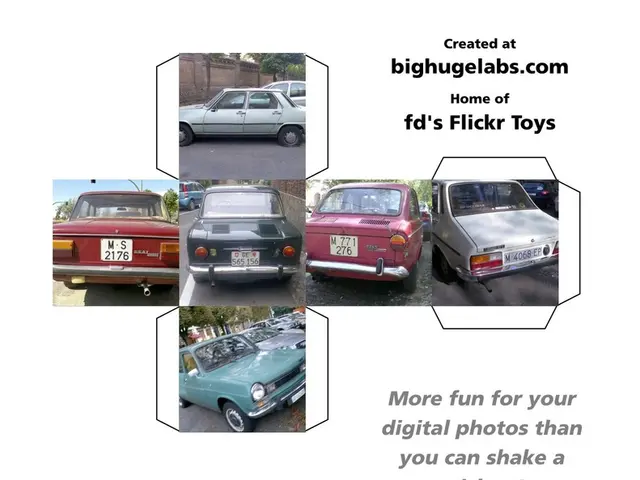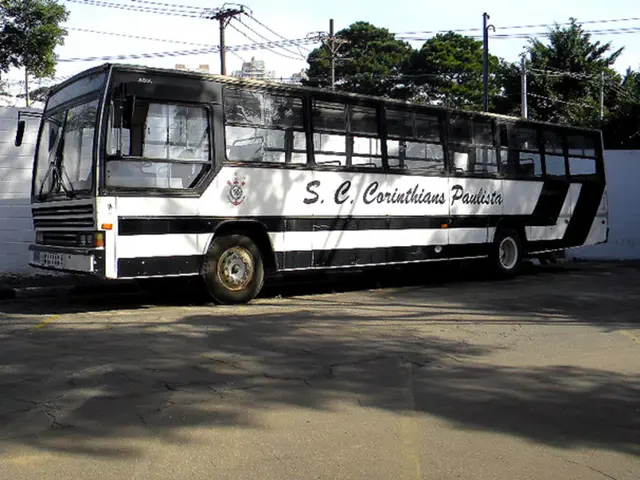Unbearable Traffic Jams on Motorways Due to Overcrowded Truck Parking Spaces: ACE Sounds the Alarm
Critics slam inadequate truck parking areas on highways due to overcrowding - Criticism mounts over excessively congested parking spots on highways due to insufficient facilities.
Let's get real, folks – the roads are chock-full! The Auto Club Europa (ACE) has called out Germany for having a pathetic number of parking spaces for oversized trucks on their motorways. Over a two-month period between April 15 and June 3, ACE reported thousands of trucks parked on the highways past 8:30 PM every night, particularly on the southern Berlin Ring (A10) and the A24 in Mecklenburg-Vorpommern.
What's the big deal? You might ask. Well, it's dangerously friggin' risky when these trucks park recklessly, blocking entrance and exit lanes, or even parking spots meant for cars! In Saxony, rest areas like the Oberlausitz Nord on the A4 near Bautzen and the Noethnitzgrund South and North on the A17 near Dresden were overcrowded by 165% and 100–120%, respectively. By 4 PM, it's a free-for-all for parking spots!
Dirk Engelhardt, a spokesperson for the federal association of goods transport, logistics, and disposal (BGL), confirms the chaos. The government plans to address the issue, stating they've been gradually increasing the number of parking spaces since 2018.
ACE Bares All: Overcrowding Galore in Eastern Germany
The ACE survey isn't just a one-off – it reveals major overcrowding at 31 rest areas in eastern German states, with 2,168 parked trucks and only 1,412 parking spaces. That's around 50% overcrowding, and hazardous situations, particularly during nighttime hours, were found on 21 of the checked locations.
But hold up! Don't freak out – no trucks were ever spotted on the hard shoulder of the motorway on any rest area.
BGL Says Prioritize This!
A survey by the Federal Highway Research Institute in 2023 confirms the shortage of more than 19,500 regular parking spaces nationwide for trucks. With over 102,000 trucks parked overnight and 82,490 parking spaces available, it's no wonder BGL sees the shortage as significant and demands immediate action from the Ministry of Transport.
Federal Ministry of Transport: We Got This Under Control (We Hope)
The Federal Ministry of Transport assures us that they've been adding parking spaces since 2018 and are testing telematic parking solutions to optimize the use of existing facilities. Here's hoping these measures work! Let's keep our fingers crossed.
Digging Deeper:
What's the deal with these telematic parking solutions?ô Telematic parking solutions, such as compact parking, aim to optimize the use of existing facilities by providing real-time information on parking availability.
Why are mixed-use parking spaces a thing?ô Proposing that trucks use car parking spaces at night is a suggestion to increase the availability of parking spaces for trucks during peak hours.
Looking ahead: Expanding parking spaces beyond motorways and integrating them with charging infrastructure, such as the Megawatt Charging System, are being explored to address the shortage more effectively.
Innovations like wireless inductive charging and bidirectional systems could revolutionize the parking needs of trucks, potentially making them mobile energy storage units. But we'll have to wait and see! Stay tuned for updates!
The European Auto Club (ACE) has voiced concerns about the insufficient number of parking spaces for oversized trucks on German motorways, particularly in areas like the A10 and A24. In response, the federal association of goods transport, logistics, and disposal (BGL) has highlighted the need for immediate action to alleviate the overcrowding problem, suggesting potential solutions such as telematic parking solutions and mixed-use parking spaces in the transportation industry. Meanwhile, the Federal Ministry of Transport is testing these innovative solutions and plans to expand parking spaces beyond motorways, incorporating charging infrastructure for electric trucks in the future. The finance sector may play a key role in funding these infrastructure improvements, as the lack of parking spaces poses a risk to the efficiency and safety of Germany's transportation industry.








